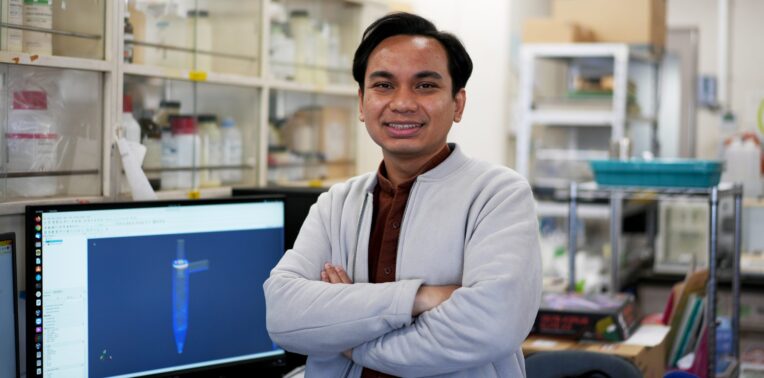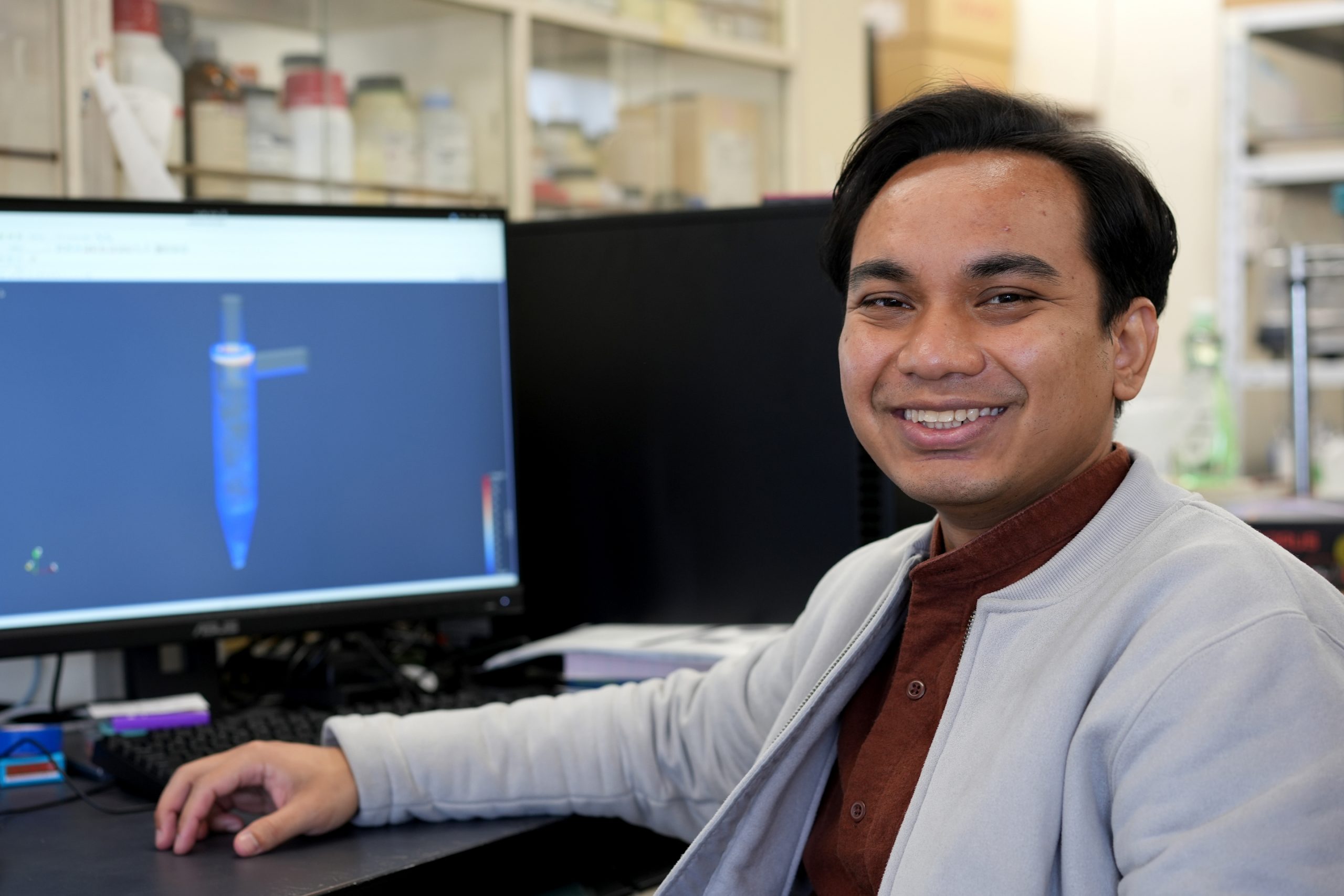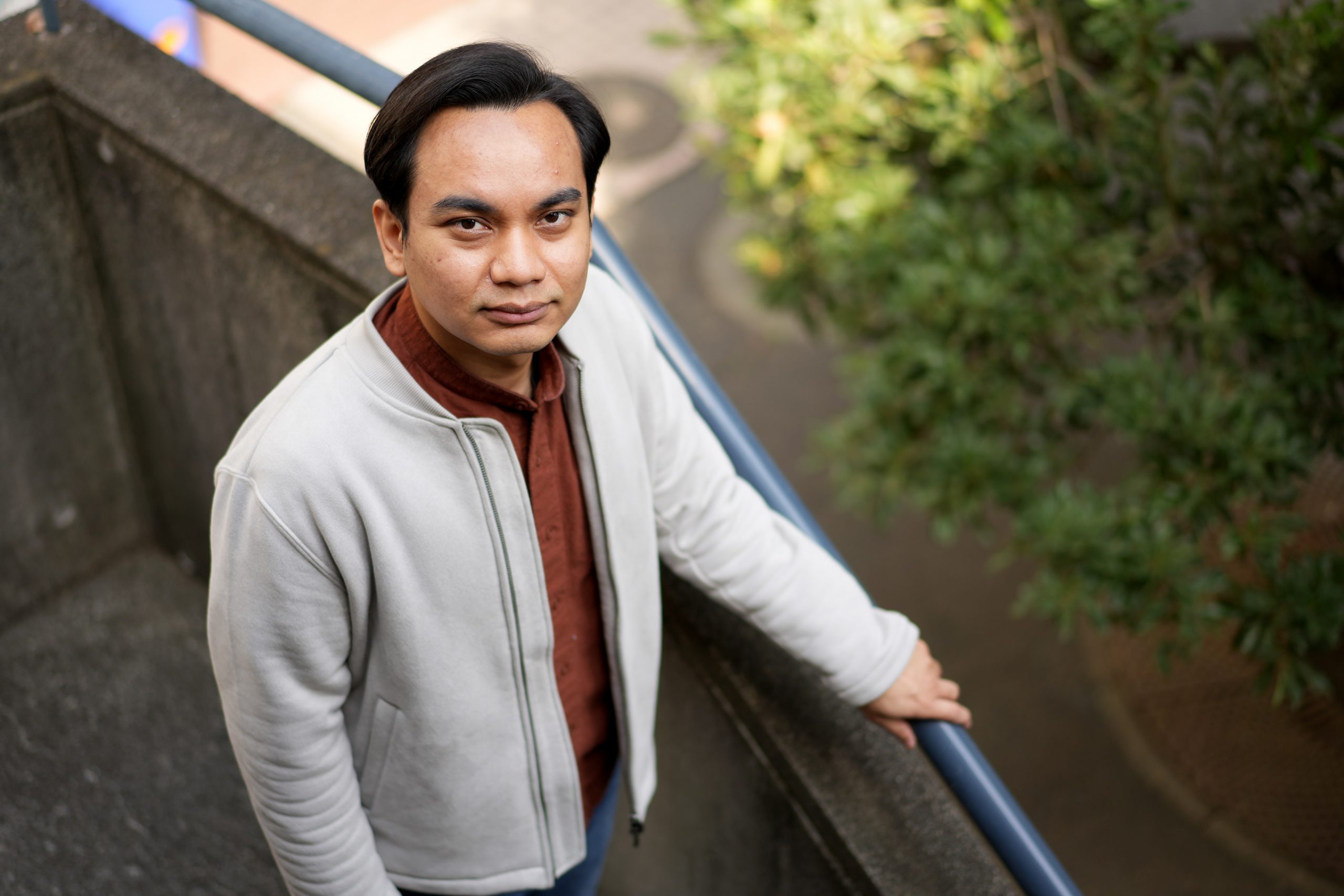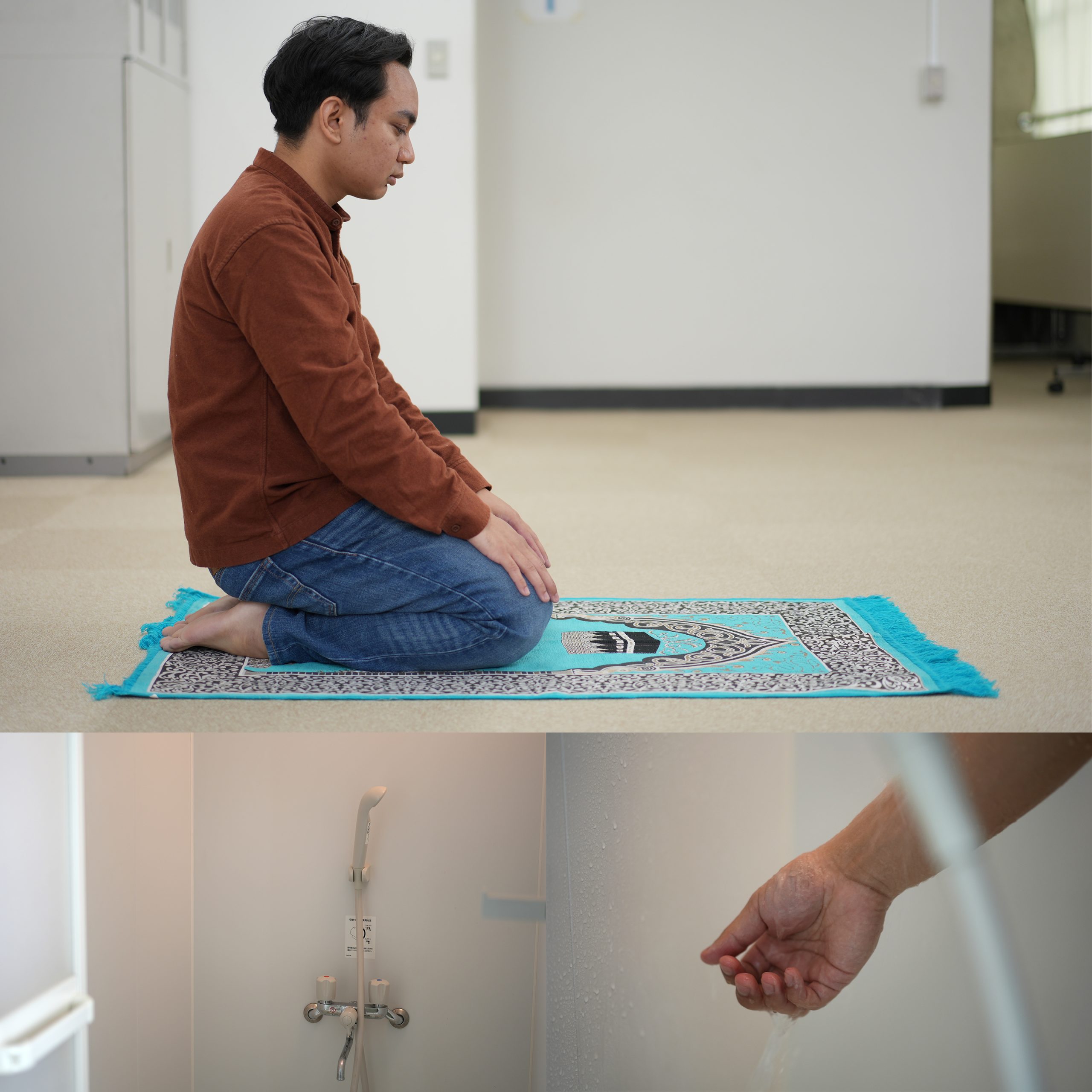
A Campus for Global Talent: The Ultimate Environment for Immersive Research
- #Multiculturalism
2023.05.08
Here, we sit down with Aiman, who came to study advanced technology in Japan on a Malaysian government scholarship program and has been a project researcher in the Department of Applied Chemistry at the Faculty of Science and Technology since June 2022. Aiman talks about his life at Keio and his journey so far as he reflects on his career as a researcher overcoming differences in culture and customs. (Interview conducted April 2023)
Project Researcher, Department of Applied Chemistry
Muhammad Aiman bin Mohd Nor
Born in Selangor, Malaysia, Aiman came to Japan in 2013 and received a bachelor’s degree from the Faculty of Science and Technology at the Tokyo University of Science. He then earned master’s and doctoral degrees from the Graduate School of Science and Engineering at the Shibaura Institute of Technology. Since June 2022, he has served as a project researcher in the Environmental Chemistry lab at the Keio University Department of Applied Chemistry.
A Sunrise Seen in a Dream Instills the Determination to Study in Japan
– What inspired you to study in Japan?
I’ve been watching Japanese anime since I was little— things like Naruto, One Piece, and Bleach. [laughs] But I never intended to study abroad. I happened to do well on an exam I took just before graduating from high school, which granted me a scholarship to study in either Canada or Japan. So, I was torn between Canada, where I could speak English, and Japan, which I loved because of anime. Then one day, I had a dream of a vivid sunrise. I considered this a sign from Allah and decided to study in Japan.
– Did you have any concerns about the language?
I had studied Japanese at a university in Malaysia for three years as part of a twinning program before coming, so I wasn’t too worried. I entered the Department of Mechanical Engineering at the Faculty of Engineering at the Tokyo University of Science and focused on fluid dynamics for two years, but studying in Japanese was more challenging than I expected. Even so, I was able to enjoy my time because I was together with two friends from my university in Malaysia, and I was also able to make many Japanese friends. On the other hand, I did struggle with finding food I could eat. As a Muslim, I only eat halal food, which is processed according to Islamic law, so I couldn’t eat the cafeteria food and always had to go home for lunch. I also had to check ingredients carefully when shopping, so cooking for myself was also a struggle.

A Job Offer Arrives Just Before Leaving Japan
– After earning your master’s and doctoral degrees at the Shibaura Institute of Technology, you came to Keio.
That’s right. I hadn’t initially considered graduate school, but I decided to continue studying after receiving a scholarship from the Shibaura Institute of Technology. My master’s program focused on mechanical engineering and my doctoral program on regional environmental systems. After spending two years as a postdoc, I was preparing to leave Japan when I received a job offer in an email from Professor Tomoaki Okuda, who I had met through the Japan Aerosol Association, where I had often given research presentations. While we knew about each other, we didn’t know each other personally, since I had been working in engineering and his laboratory focused on chemistry. I didn’t have high hopes when I applied, but to my surprise, I was asked to interview and was hired on the spot. [laughs] I’m deeply grateful to Prof. Okuda for giving me a chance.
– You then started working at Keio as a project researcher in June 2022.
At first, I was worried about whether I could fit in at a lab in such a different field, but with the support of Prof. Okuda and others in the lab, I was able to adapt quickly. The lab took a camping trip to Izu in the summer, and now, with the COVID-19 pandemic winding down, I’m coming to Yagami Campus almost every day. Here, there’s always something new to discover, and it has positively impacted the way I do research. There are things I wouldn’t have learned if I had continued working in the same field forever.
– What is the research environment like at Keio?
It’s wonderful. In my lab, there are people from various backgrounds, and I feel it’s an environment where you can conduct research across a wide range of areas. It’s also incredibly stimulating to have so many researchers from across Japan and overseas come visit us. The caliber of the students here continues to amaze me every day.

Moved by the Presence of a Prayer Room with Shower Facilities
– Have you experienced any difficulties due to cultural differences?
I haven’t experienced any discomfort due to nationality or religion, perhaps because students and faculty are so diversity-conscious. Actually, what surprised me was that there was a dedicated prayer room on campus equipped with a shower room. In Islam, there is a procedure called wudu for washing parts of the body before prayer. There are hardly any facilities for this in Japan, and it was always a struggle to try and use the restroom, so having the shower room is very helpful, and I greatly appreciate the fact that Keio decided to build such a facility. If I could make one request, it would be that the university offers halal food at the cafeteria and the co-op.

– Finally, could you share your goals for the future?
It’s hard for me to believe, but it’s been ten years since I first came to study in Japan. At first, I didn’t understand anything in my Japanese classes, but now I’m even able to participate in interviews like this. [laughs] I’ve also made many friends, acquaintances, and connections with researchers. Just the other day, I returned to Malaysia for the first time in two and a half years and was able to spend quality time with my family. And now, I’ve started feeling that I want to contribute to research and education in my home country. I don’t know how many years it will be until I return to Malaysia, but I plan to continue devoting myself to research and hope to bring back plenty of knowledge, experience, and a strong network with me when I do.
(Photo by KIYOSHIRO OKADA)

